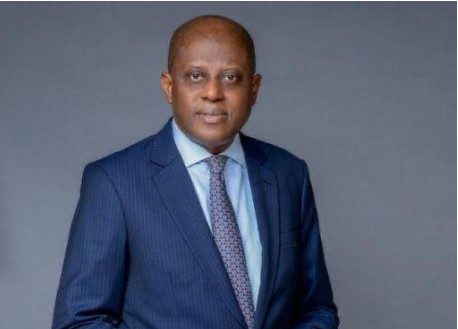Photo caption: CBN Governor Yemi Cardoso
Nigeria spent about $2.01bn on external debt servicing between January and April 2025, marking a 50 per cent increase compared to the $1.33bn recorded during the same period in 2024.
This is according to the latest international payments data published by the Central Bank of Nigeria on its website, which was obtained by The PUNCH on Wednesday.
The data showed that debt servicing alone accounted for 77.1 per cent of Nigeria’s total international payments within the four months, a sharp rise from the 64.5 per cent share recorded in the same period of 2024.
In total, the country’s international payments, comprising debt service, remittances, and letters of credit, stood at $2.60bn as of April 2025, up from $2.07bn recorded in the corresponding period of 2024.
The figures highlight the increasing burden of external debt on Nigeria’s foreign exchange reserves, which reportedly fell by about $3bn during the review period.
An analysis of the monthly trend shows that Nigeria paid $540.67m in January 2025, slightly below the $560.52m recorded in January 2024. In February, the figure stood at $276.73m, almost unchanged from the $283.22m paid in February 2024.
However, in March, debt service spiked to $632.36m, more than double the $276.17m paid in the same month last year. The trend continued in April with another $557.79m disbursed, representing a 159 per cent increase from the $215.20m paid in April 2024.
Within just two months (March and April), Nigeria spent nearly $1.2bn on debt repayments alone, pointing to a heavy schedule of maturing loans during the period. The sharp rise in obligations suggests the settlement of large commercial or bilateral debts within those two months.
The PUNCH observed that the two-month period coincided with the clearance of an external debt obtained from the International Monetary Fund. The IMF earlier confirmed that Nigeria has fully repaid the $3.4bn financial support it received under the Rapid Financing Instrument to cushion the economic impacts of the COVID-19 pandemic.
In a statement sent to journalists on behalf of Mr Christian Ebeke, the IMF Resident Representative for Nigeria, the Fund said the repayment was completed on April 30, 2025. The loan, disbursed in April 2020, was aimed at helping Nigeria address a sharp fall in oil prices, economic contraction, and fiscal pressures caused by the pandemic.
“As of April 30, 2025, Nigeria has fully repaid the financial support of about $3.4bn it requested and received in April 2020 from the International Monetary Fund under the Rapid Financing Instrument to help alleviate the impact of the COVID-19 pandemic and the sharp fall in oil prices,” the IMF stated.
However, despite the full settlement of the principal, Nigeria will continue to honour additional annual payments related to Special Drawing Rights charges. The Fund noted that the country is expected to make annual payments of about $30m in SDR-related charges over the next few years.
According to the IMF, the charges are tied to the difference between Nigeria’s SDR holdings, which currently stand at SDR 3,164m ($4.3bn), and its cumulative SDR allocation of SDR 4,027m ($5.5bn). The charges are levied at the SDR interest rate, which is updated weekly, and will continue until Nigeria’s SDR holdings match the cumulative allocation amount.
Nigeria’s $3.4bn loan from the IMF was one of the largest disbursements under the Rapid Financing Instrument globally and came with relatively favourable terms compared to traditional IMF programmes.
Earlier reports showed that debt servicing to the IMF surged to $1.63bn in 2024, made up entirely of principal repayments, with no interest or charges recorded for that year.
Nigeria’s total external debt servicing for 2024 amounted to $4.66bn, up from $3.5bn in 2023. Multilateral creditors accounted for the bulk of the amount at $2.62bn, with the IMF responsible for about 35 per cent of the total external debt payments during the period.
Fitch Ratings recently noted that Nigeria’s external debt service will increase from $4.7bn in 2024 to $5.2bn in 2025. This includes $4.5bn in amortisation payments and a $1.1bn Eurobond repayment due in November.
Fitch noted, “Government external debt service is moderate but expected to rise to $5.2bn in 2025 (with $4.5bn of amortisations, including a $1.1bn Eurobond repayment due in November 2025), from $4.7bn in 2024, and fall to $3.5bn in 2026.”
The agency also cited a minor delay in the payment of a Eurobond coupon due on March 28, 2025, as a reflection of persistent challenges in public finance management.
Although Nigeria’s external debt service remains within manageable levels, Fitch warned that high-interest costs, weak revenue performance, and limited fiscal space remain significant concerns.
Fitch said general government debt was expected to remain at about 51 per cent of GDP in 2025 and 2026. However, it expressed concern over the government’s revenue position, noting that interest payments will consume a substantial portion of income.
It stated, “We expect general government revenue-to-GDP to rise but to remain structurally low (averaging 13.3 per cent in 2025–2026), largely accounting for a high general government interest/revenue ratio, above 30 per cent, with federal government interest/revenue ratio of nearly 50 per cent.”
=== PUNCH ===



